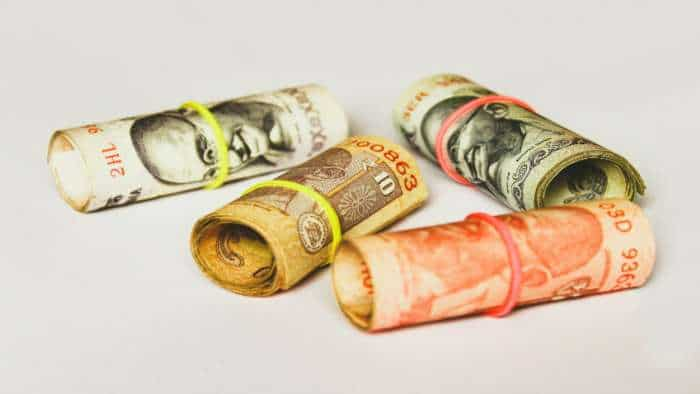Asian shares fall, dollar at 7-month high after Yellen comments
Yellen said on Friday the Fed may need to run a "high-pressure" economy in order to reverse damage from the global financial crisis that depressed output.

Asian shares fell on Monday while the dollar held firm near seven-month high against a basket of major currencies after comments from Federal Reserve Chair Janet Yellen boosted long-dated U.S. bond yields.
MSCI`s broadest index of Asia-Pacific shares outside Japan dropped 0.7 percent, with Hong Kong`s Hang Seng hitting 1-1/2-month lows.
Japan`s Nikkei pared early gains to stand flat.
"Although Japanese shares had rallied in the past few weeks, many investors are cautious ahead of earnings, where downward revisions are quite likely," said Tatsushi Maeno, senior strategist at Okasan Asset Management.
U.S. stock futures also fell 0.3 percent.
Yellen said on Friday the Fed may need to run a "high-pressure" economy in order to reverse damage from the global financial crisis that depressed output.
Her remarks were not addressing immediate policy concerns directly and did not change prevailing view that the Fed is likely to raise interest rates in December.
Yet speculation that she may prefer to keep an easy monetary policy stance for a long time even if inflation exceeds its 2 percent target pushed up long-dated U.S. bonds, The 30-year bond yield hit a four-month high of 2.565 percent and last stood at 2.554 percent.
As higher U.S. bond yields could attract more foreign investors, they helped the dollar post its largest weekly rise against a basket of six major currencies in more than seven months last week.
The dollar index, which rose 1.4 percent last week, hit a seven-month high of 98.158 in early Monday and last stood at 98.1103.
The euro slipped to 2 1/2-month low of $1.0964 early on Monday while the yen traded at 104.25 per dollar, near its 2 1/2-month low of 104.635 touched last Thursday.
There is a reason for investors to be concerned about inflation as recovery in oil prices has lifted inflation in some countries.
The U.S. producer price index for final demand increased 0.3 percent last month. In the 12 months through September, the PPI jumped 0.7 percent, the biggest increase since December 2014.
On Friday, China also reported higher than-expected inflation in September for consumers and producers alike, with producer prices rising for the first time since January 2012.
In the United States, a gauge of investors` inflation expectations, the breakeven inflation rate based on inflation-linked bonds, rose to its highest level in about five months.
Oil prices logged their fourth straight week of gains last week, extending their advance since the Organization of the Petroleum Exporting Countries announced last month its first planned output cut in eight years.
U.S. crude futures traded at $50.17 per barrel in early Monday trade, down 0.4 percent from last week.
Brent crude futures stood at $51.88 per barrel, down 0.1 percent.
Chinese economic data on Wednesday, including third-quarter GDP, will be a key focus of this week.
China`s economy likely grew by a steady 6.7 percent in the third quarter from a year earlier, the same pace as in the previous quarter, as increased government spending and a property boom offset stubbornly weak exports, according to a Reuters poll of 58 economists.
But the expected rate of expansion would still be near the weakest since the global crisis, and analysts are increasingly worried that growth is becoming too reliant on government spending, ballooning debt levels and a housing market that is showing signs of overheating.
Some market players are wary of a possible hit to investors` risk appetite after Iraq`s Prime Minister Haider al-Abadi on Monday announced the start of an offensive to retake Mosul, the capital of Islamic State`s so-called caliphate in Iraq.
The assault on Mosul is backed by the U.S.-led coalition and could be one of the biggest military operations in Iraq since the 2003 U.S.-led invasion that toppled Saddam Hussein.
Elsewhere, the Thai baht weakened 0.5 percent as Thailand has sought to dispel any concern about a royal succession after Crown Prince Maha Vajiralongkorn said he would delay his ascension to the throne while he mourns his father.
"The passing of King Bhumibol has great significance, and Thailand will not only be entering a period of mourning, but one of dynamic changes and political uncertainty," said Mark Mobius, executive chairman of Templeton Emerging Markets Group.
"Under such circumstances, market observers will be looking out for potential issues over political friction and royal succession, and investors should be prepared for volatility. In the long run however, we believe the market uncertainty will ultimately be outweighed by Thailand’s strong fundamentals," he said.
Get Latest Business News, Stock Market Updates and Videos; Check your tax outgo through Income Tax Calculator and save money through our Personal Finance coverage. Check Business Breaking News Live on Zee Business Twitter and Facebook. Subscribe on YouTube.
RECOMMENDED STORIES

Tamil Nadu Weather Alert: Chennai may receive heavy rains; IMD issues yellow & orange alerts in these districts

Fundamental picks by brokerage: These 3 largecap, 2 midcap stocks can give up to 28% return - Check targets

SIP vs PPF: How much corpus you can build in 15 years by investing Rs 1.5 lakh per year? Understand through calculations

SIP+SWP: Rs 10,000 monthly SIP for 20 years, Rs 25 lakh lump sum investment, then Rs 2.15 lakh monthly income for 25 years; see expert calculations

Top 7 Mutual Funds With Highest Returns in 10 Years: Rs 10 lakh investment in No 1 scheme has turned into Rs 79,46,160 in 10 years

SBI Senior Citizen Latest FD Rates: What senior citizens can get on Rs 7 lakh, Rs 14 lakh, and Rs 21 lakh investments in Amrit Vrishti, 1-, 3-, and 5-year fixed deposits
08:58 AM IST










 Asian markets trade positive even as Fed signals no hurrry in rate cut
Asian markets trade positive even as Fed signals no hurrry in rate cut  Share Market Today, September 19: Sensex, Nifty likely to open positive; GIFT Nifty futures up almost 100 pts
Share Market Today, September 19: Sensex, Nifty likely to open positive; GIFT Nifty futures up almost 100 pts Sensex, Nifty likely to open in green; GIFT Nifty futures edge higher
Sensex, Nifty likely to open in green; GIFT Nifty futures edge higher MarketsMojo unveils MOJOMF distribution service platform
MarketsMojo unveils MOJOMF distribution service platform Sensex, Nifty likely to open in green; GIFT Nifty futures up over 200 pts as Asian market indices rally
Sensex, Nifty likely to open in green; GIFT Nifty futures up over 200 pts as Asian market indices rally